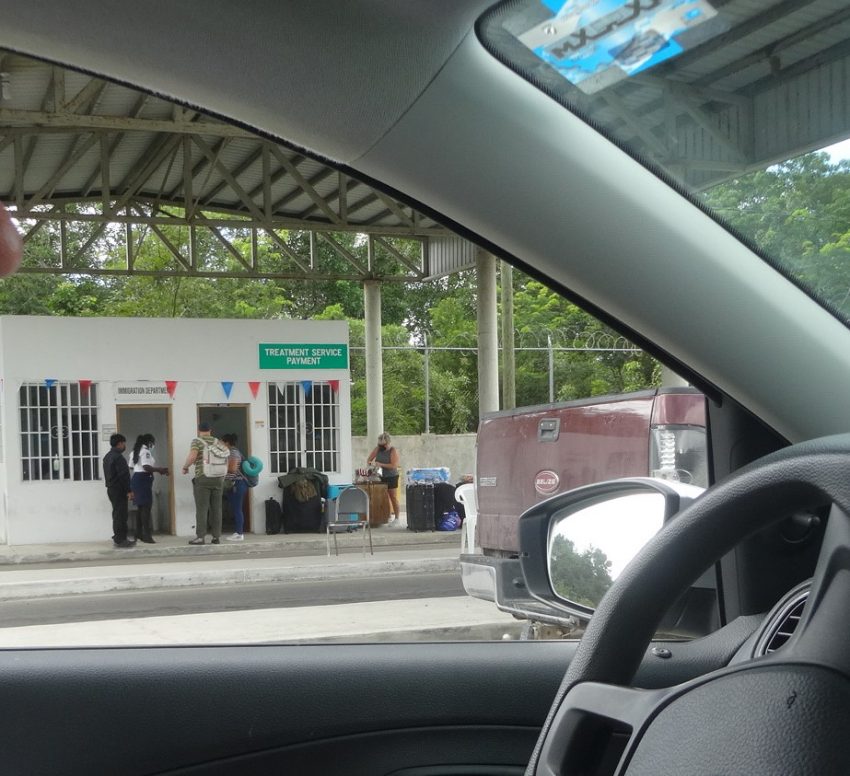
Bordering
We were blocked, stopped and stuck at the border between Mexico and Belize for five long hours. It was a strange way to exist – a state of waiting in which nothing happens. We didn’t have the right papers. We were in Limbo, that place of meaningless suspension in which you wait endlessly for judgement on your soul. Being in Limbo changes you. You become passive and remain desperate. A conflicted state of victimhood. You know you are the only person in Limbo even when there are other people around you in the same void.
Transitioning
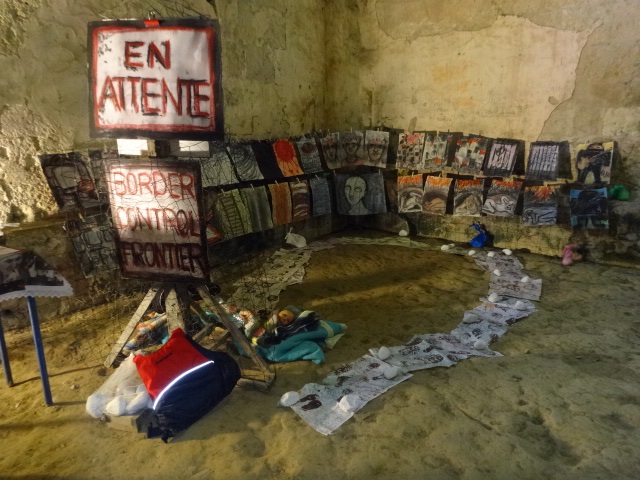
As we waited we watched an unending stream of taxis from Mexico collect backpackers from the Belize border and ferry them back across the Mexican border to make the required 3-night booking into a 3-star hotel in Belize. Afterwards, they returned to the Belizean border and could move onwards to wherever or somewhere else. There were no people leaving Belize and yet there were all these circulating movements. Would bribery help us? I wondered about smugglers and migrants and those who swam across the rivers between countries.
Passports and papers, the framing of rights by rituals
Jean Passepartout, the valet of Phineas Fogg in Around the World in 80 Days has in fact ‘passed throughout’ (translation from the French) the world without a passport. His name is a play on words but passepartout is also the mount that frames a picture or the tape that holds the picture in its frame so these are contrary meanings. Frames are static, closed and completed objects but rather like our passport photos they are lies suggesting one fixed reality. Do we live in a world where identity is uncertain and variable or in a world where identity is unchanged for ten years or forever by a photo stuck onto a cardboard booklet? Passports, as we know them today, are relatively new. As borders become increasingly impermeable so passports have become essential.
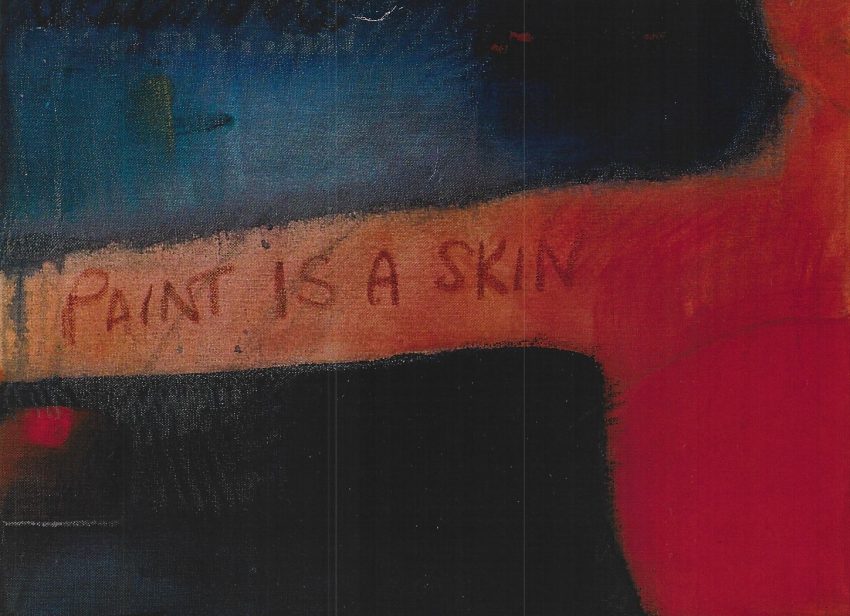
A movious world and a changing identity
Take the history of my scattered family. My ancestors have fought in European wars since Napoleon and then were sent away to colonise Africa. Some of them fought with the British against the Russians and spoke German when Germany did not exist. My family has been African for 200 years and most of my life has been spent there but I haven’t got an African passport. When I was born I was listed as Caucasian or European which was another term for white skin. Now I’m European and French and British but that is NOT a description of my ethnicity or colour as there is only one human race and nobody is bi or multi-racial though you can be multi-ethnic.
Metamorphosing
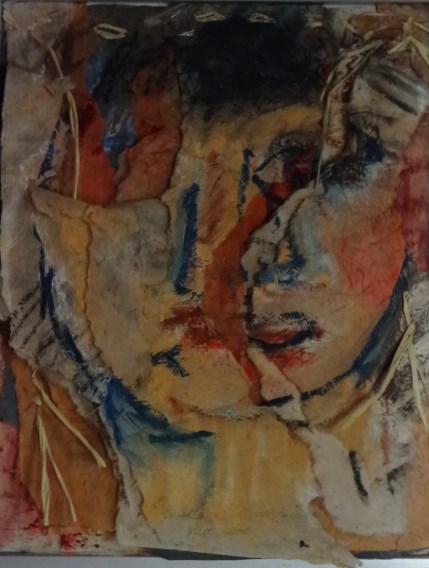
So what are we and where are we? At this moment? Over time? We are always slipping and changing. We invent anniversaries and award ourselves documents and presents as we pass from baby, to toddler, to child, to adolescent to adult, to mature, to old, to dead as if these markers were a true indication of progression without any change of identity. Is that really so? There is a strange truth that we do not do these things alone. We are physically, materially, spiritually and metaphysically connected with each other not just by the virus-filled air we breathe in and out or by the genetic input and output from our parents to our offspring. We are always in between and we are always becoming. We are always unfixing, dissolving, disintegrating and then again re-integrating. We live in a liminal state. I had no intention of giving my children my dyscalculia and dyslexia which I didn’t know I had but it seems they also have my passions for human rights and the creative arts and make them all their own.
Embodying
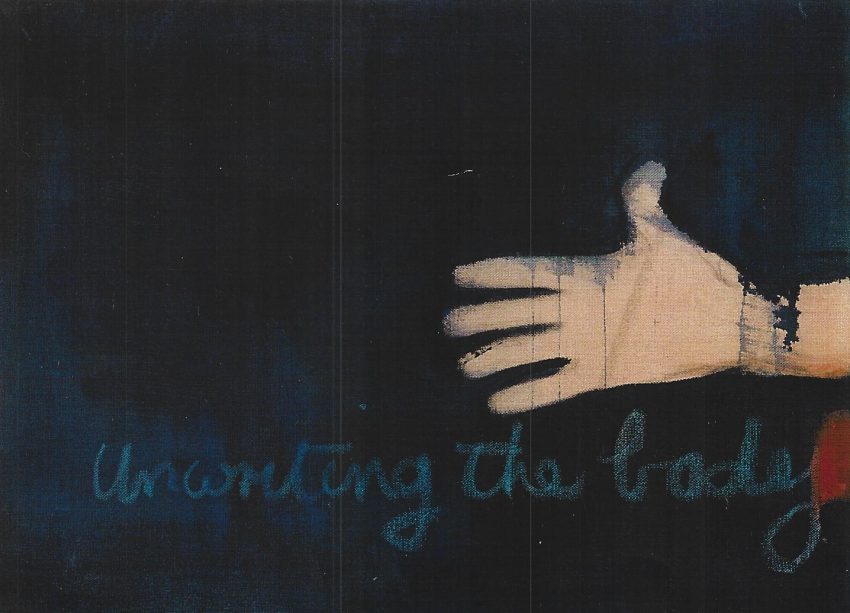
I wrote in my MA thesis that embodiment is a necessary condition for categorisation as it makes containment and control possible. Embodiment is a condition of being alive. Sex and giving birth are confusions of physical boundaries and are about the violability of women. What are we in these relational states? What are we when we are creative? Creativity is also about the confusions of boundaries – the making of something more than our physical bodies. The breaking of boundaries that sex and birth are. My references were Bracha Ettinger and Donna Haraway.
Transforming
Is this now the time to ask what happens to us and our souls as we become disembodied by transmuting ourselves into creatures whose existence is no longer physical? We are changing into avatars on the web and in the cloud and that is where we are leaving our memories, our lives and loves and our art. What does that mean for us humans?